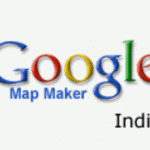 Google Inc., confronting the U.S. Justice Department inspection of its high-profile advertising partnership to display Google ads alongside Yahoo! Inc.’s search results, will come into effect by early October, even if federal regulators have not yet approved the deal, Google Chief Executive Officer Eric Schmidt said Thursday.
Google Inc., confronting the U.S. Justice Department inspection of its high-profile advertising partnership to display Google ads alongside Yahoo! Inc.’s search results, will come into effect by early October, even if federal regulators have not yet approved the deal, Google Chief Executive Officer Eric Schmidt said Thursday.
“We are going to move ahead with the deal,” Schmidt said in an interview on Bloomberg Television in Denver, after being asked whether the companies would wait for the Justice Department to complete its review. “We are in the process of talking to the government. They have so far not indicated one way or the other how they are dealing with us.”
The companies gave themselves three and a half months to initiate the partnership when it was announced June 12, and Schmidt’s present comments indicate that the deal is still on that schedule. That time period runs through about the first week of October.
Google, the most popular search engine, is attempting to work out the deal amid concerns that it will give the company too much power in the $65 billion online advertising market. Senator Herb Kohl, a Wisconsin Democrat, asked last month whether the agreement will reduce Yahoo to “nothing more than the newest satellite in the Google orbit.”
“We always worry a little bit, but we think our arguments are pretty strong,” Schmidt, 53, said today. “Yahoo has made it very, very clear they are going to take the best parts of their network and ours and combine them.”
According to the pact, Google will supply Yahoo with online advertisements that are expected to generate an additional $800 million in annual revenue for Yahoo and help prop up its slumping finances.
To ward off criticism about the No. 1 and No. 2 search engines teaming up, the companies stated that they would give the Justice Department 3 ½ months to review the deal, although they were not required to do so as it does not involve an acquisition. Schmidt’s comments suggest that they would not wait any longer to implement the partnership.
“We continue to cooperate with regulators,” Google spokesman Adam Kovacevich said in an e-mail after the interview. “Ultimately we are confident that they will be able to conduct their review within that time period and allow us to move forward.”
He declined to say what Google would do if the Justice Department moves to block the deal.
“A Justice Department spokeswoman declined to comment on the status of its Google-Yahoo review.”
Google and Yahoo signed the deal after a six-month long battle with Microsoft Corp., the world’s largest software maker, to acquire Yahoo for as much as $47.5 billion. Yahoo CEO Jerry Yang, who said the Google deal may add $800 million a year to sales, is seeking to boost Yahoo’s share price after a scuffle with investor Carl Icahn for board seats.
Microsoft Corp., a longtime rival, criticizing the Google-Yahoo partnership, is attempting to rally opposition to the deal on grounds that it would create a monopoly. Some public interest groups also are calling for the government to derail the deal or at least put limits on it.
“I hope that the Justice Department will raise some strenuous objections to this deal, but the zero hour is upon us,” said Jeff Chester, executive director of Center for Digital Democracy, a public interest group in Washington, D.C., that is critical of the plan.
Schmidt has continually emphasized that the partnership is designed to avoid anti-trust concerns, in part by leaving the door open for other companies to forge similar deals with Yahoo. In addition, Google will supply only a portion of the ads that appear on Yahoo, which will continue to sell ads on its own.
The deal is the most outstanding part of Yahoo’s endeavor to become more financially successful. The Internet Company said it expects up to $800 million in revenue and $250 million to $450 million in new operating cash flow over the first year of the deal.


